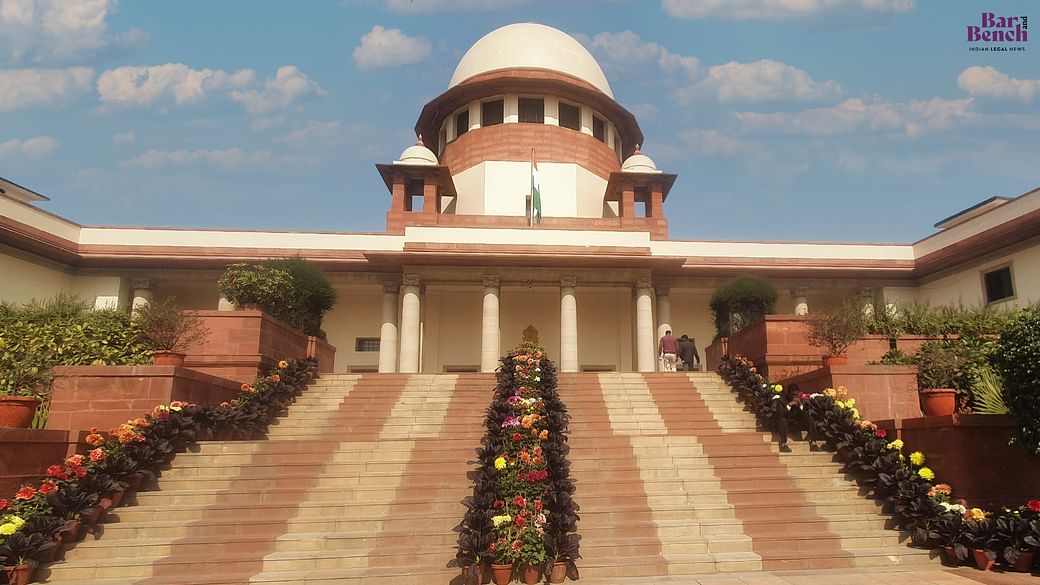No writ of mandamus can be issued by the High Court in the exercise of powers under Article 226 of the Constitution of India, directing a financial institution/bank to positively grant the benefit of OTS to a borrower. The grant of benefit under the OTS is always subject to the eligibility criteria mentioned under the OTS Scheme and the guidelines issued from time to time. Such an observation was made by the Hon’ble Supreme Court of India before Hon’ble Justice M.R. SHAH & Hon’ble Justice B.V. NAGARATHNA in the matter of The Bijnor Urban Cooperative Bank Limited vs Meenal Agarwal & ors [CIVIL APPEAL NO. 7411 OF 2021]
The facts of the case were that the respondent had obtained a credit facility from the bank of about Rs. 1 crore. The said loan account with the Bank was categorized as “Non-Performing Asset, (NPA)”. The Bank also initiated proceedings under the provisions of the SARFAESI Act, 2002. There were two other loan accounts also which were being regularly serviced by respondent no.1, meaning thereby that the payment was regularised insofar as two other loan accounts are concerned. However, so far as the present loan account is concerned, which was declared as NPA, not a single amount was paid till an application for extending the benefit of OTS was submitted but her application for the grant of OTS was rejected. Aggrieved the respondent preferred a writ petition before the High court challenging the order dated 17.09.2019 passed by the Bank rejecting her application for giving the benefit of the OTS scheme. Vide order dated 25.01.2021, the High Court disposed of the said writ petition by directing the Bank to consider the grievance of the original writ petitioner and to decide her representation dated 22.07.2019 after affording due opportunity of hearing to her, as expeditiously as possible and preferably within a period of four weeks. Subsequently, her application was again rejected. Aggrieved the respondent again preferred a writ petition before the High court in which by the impugned judgment and order and in the exercise of powers under Article 226 of the Constitution of India, the High Court has issued a writ of mandamus and has directed the Bank to positively consider her application for grant of benefit under the OTS Scheme. Feeling aggrieved and dissatisfied the bank preferred the instant appeal.
The Hon’ble Supreme Court observed that as per the guidelines issued, the grant of benefit of the OTS Scheme cannot be prayed as a matter of right and the same is subject to fulfilling the eligibility criteria mentioned in the scheme.
Additionally, the Hon’ble Supreme Court also observed that the High Court in the impugned judgment and order has observed that no opportunity was given to the original writ petitioner, which is factually incorrect. Therefore, the decision cannot be said to be in violation of the principle of natural justice.
Furthermore, the Hon’ble Supreme Court held that “Merely because the proceedings under the SARFAESI Act have remained pending for seven years, the Bank cannot be held responsible for the same. No fault of the bank can be found. What is required to be considered is a conscious decision by the Bank that the Bank will be able to recover the entire loan amount by auctioning the mortgaged property and a due application of mind by the Bank that there are all possibilities to recover the entire loan amount, instead of granting the benefit under the OTS Scheme and to recover a lesser amount. It is ultimately for the Bank to take a conscious decision in its own interest and to secure/recover the outstanding debt. No bank can be compelled to accept a lesser amount under the OTS Scheme despite the fact that the Bank is able to recover the entire loan amount by auctioning the secured property/mortgaged property. ”
Finally, the Hon’ble Supreme Court allowed the instant appeal and firmly held that the High Court has materially erred and has exceeded in its jurisdiction in issuing a writ of mandamus in the exercise of its powers under Article 226 of the Constitution of India by directing the appellant-Bank to positively consider/grant the benefit of OTS to the original writ petitioner.
Click Here To Read The Judgment
Judgment Reviewed by: Rohan Kumar Thakur


